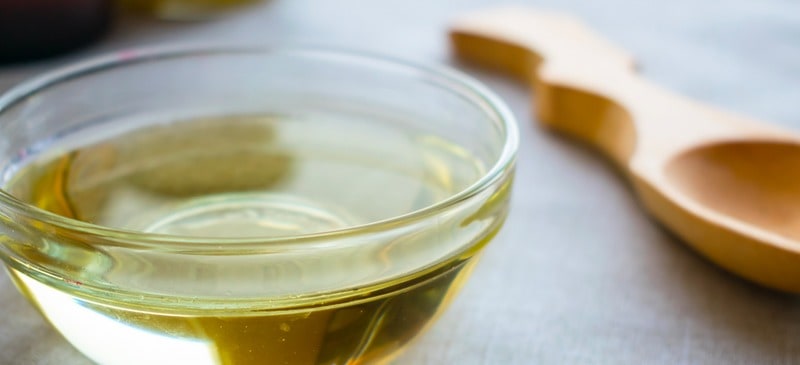This Dr. Axe content is medically reviewed or fact checked to ensure factually accurate information.
With strict editorial sourcing guidelines, we only link to academic research institutions, reputable media sites and, when research is available, medically peer-reviewed studies. Note that the numbers in parentheses (1, 2, etc.) are clickable links to these studies.
The information in our articles is NOT intended to replace a one-on-one relationship with a qualified health care professional and is not intended as medical advice.
This article is based on scientific evidence, written by experts and fact checked by our trained editorial staff. Note that the numbers in parentheses (1, 2, etc.) are clickable links to medically peer-reviewed studies.
Our team includes licensed nutritionists and dietitians, certified health education specialists, as well as certified strength and conditioning specialists, personal trainers and corrective exercise specialists. Our team aims to be not only thorough with its research, but also objective and unbiased.
The information in our articles is NOT intended to replace a one-on-one relationship with a qualified health care professional and is not intended as medical advice.
Benefits of MCT Oil On the Keto Diet
March 3, 2019

Let’s start with the basics: What is MCT oil? And why is MCT oil good for the keto diet?
The “MCT” in MCT oil stands for medium-chain triglycerides, a form of saturated fatty acid that is found in certain foods like coconut/coconut oil. MCT oil is a concentrated source of these fats since it provides more than would be found in whole foods like coconuts.
To do the ketogenic (keto) diet correctly — which can lead to health improvements like weight loss, increased energy and protection against a number of chronic diseases — you need to consume high amounts of fat from your diet, while also restricting carbohydrates to very low levels. When it comes to providing your body with a clean and easily utilized source of energy in the form of dietary fat, not all fats are created equal.
Different types of foods and oils provide different types of fatty acids. The type of fat found in MCT oil, medium-chain triglycerides, is one that the body uses efficiently to create ketone bodies, the source of “fuel” the body runs off of while in ketosis.
Why Is MCT Oil Good for the Keto Diet?
Compared to short-chain and long-chain triglycerides (or LCTs), MCTs (also sometimes called “MCFAs” for medium-chain fatty acids) are more easily converted to ketones because the body has to do less work breaking apart their carbon bonds. MCTs are broken down readily in the liver also have a thermogenic effect and ability to positively alter your metabolism.
Here are some of the most important MCT oil benefits for keto:
- Helps the body create ketones and get into ketosis —Ketones have many benefits, such as helping to curb food cravings, increasing mental clarity, improving energy levels, fighting inflammation, and more.
- Can help with weight loss/weight management — The reason MCT oil for weight loss can be effective is because medium chain fats help to blunt hunger and can help with calorie control. MCTs essentially signal to the brain that the body is receiving adequate energy, therefore the desire to eat is usually reduced.
- Increases energy — MCTs are are readily used for energy, less likely to be stored as fat, and can help keep you in a “fat burning” state. Some studies have also shown they can boost exercise endurance and performance.
- Supports cognitive function — Ketones cross the blood-brain barrier and are used by the brain efficiently for fuel, which is why some people report feeling more productive and clear-headed when they supplement with MCT oil.
- Easy to digest— MCTs are an easy fat to digest compared to many other fats, which means they are well-tolerated by people with GI issues, malabsorption problems, digestive disorders like leaky gut syndrome, Crohn’s disease, gallbladder infections and so on.
- Can make intermittent fasting easier — Because ketones keep your energy up and hunger suppressed, using MCT oil to boost ketone levels is a smart way to make intermittent fasting on keto more doable.
What about using MCT oil without the keto diet? Whether you eat a low-carb diet or not, MCT oil has some noteworthy health benefits — such as helping to improve cognitive function, supporting gut health, fighting inflammation due to antioxidant properties, improving cardiovascular health, providing satiety and curbing hunger, and supporting weight management.
How to Take MCT Oil On a Keto Diet
How do you take MCT oil on a keto diet?
MCT oil has a neutral, mostly unnoticeable taste and smell. This means it can be added to all types of recipes without changing the flavor.
- MCT oil is usually treated like a keto supplement, but not often used to cook with. For example, some people take MCT by the spoonful to help with production of ketones. Because quality MCT oil can be expensive, you probably wouldn’t want to waste much of it when cooking, especially since coconut oil makes a good cooking-alternative. However, MCT oil is capable of withstanding high heat, so if you’d like, you can use both coconut oil and MCT oil in baked goods, sautés, stir-fries and grilled foods without it going rancid or oxidizing.
- Most people find that MCT oil works best in recipes when it’s blended. This helps to create a smooth texture. Try blending it into recipes, whether alone or in combination with other fats, including smoothies, oatmeal, marinades, homemade mayonnaise and salad dressings.
- Blending is especially recommended if you’re using “un-emulsified” MCT oil. If you want to avoid blending, such as when adding MCT oil to coffee, try using emulsified MCT oil that mixes much more easily at any temperature.
How much MCT oil for ketosis should you use?
When first introducing MCT oil to your diet, start with a smaller amount, such as one teaspoon or even less, and slowly increase how much you use depending on how you feel. If you seem to be reacting well to MCT oil, then work your way up to taking about one tablespoon daily.
It’s important to point out that consuming MCT oil is not a short-cut to getting into ketosis or achieving weight loss. You can think of MCT oil on the keto diet as one tool in your toolbox since it helps with ketone production, but ultimately you’ll still need to eat a clean, high-fat, low-carb diet to get into ketosis and stay there.
Best Types of MCT Oil for Keto
What kind of MCT oil is best for keto?
There are four different kinds of MCTs: caprioc, caprylic, capric and lauric acids. When it comes to creating ketones, the shorter the chain (meaning the lower the number of carbons the acid has), the faster the body can turn the fatty acids into usable energy. Caprioc and caprylic acids have fewer carbons than capric and lauric acids do, therefore they are best at helping your body to create ketones.
MCT oils usually have two or even all four types of MCTs. Many MCT oils will contain either 100 percent caprylic acid (C8), 100 percent capric acid (C10), or a combination of these two.
For support getting into ketosis, the best type of MCT oil for keto is the type that’s highest in the MCTs caprylic acids (also called C8) and to a lesser extent capric acid (also called C10), as opposed to lauric acid/C12:0. When supplementing with MCT oil on keto, some suggest choosing brands that are labeled pure C8 MCT oil, or those that contain a mix of C8 and C10. Overall, C8 is considered the most ketogenic type of MCT.
Be sure to always buy a high-quality MCT oil that clearly states what the ingredients are and how it was produced. Superior oils are made through processes like triple steam distillation, rather than using chemical solvents. You want to avoid buying MCT oil that contains cheap fillers, so spending a bit more is worth the investment.
Will coconut oil provide the same benefits as MCT oil for ketosis?
Another way to consume MCTs is by incorporating coconut oil into your diet, which is a natural source of MCTs. But keep in mind that MCT oil is a more concentrated source of medium-chain fats compared to coconut oil, and MCT oil also contains different proportions of MCTs than coconut oil. Lauric acid, the type found in high quantities in coconut oil, behaves almost like a long-chain triglyceride in many ways and less like a MCT. Because it has more carbons it takes more work to break down, so it’s less efficient at being used for ketone production compared to other types of MCTs.
The good thing about coconut oil however is that it’s very versatile; you can cook with it, or add it to things like coffee, smoothies, etc. Coconut oil also doesn’t need to be blended, is suitable for high-heat cooking, and has a pleasant taste.
Smaller amounts of MCTs can also be found in other foods that contain saturated fats, including grass-fed butter, cheeses, palm oil (I strongly recommend RSPO-certified palm oil), whole milk and full-fat yogurt.
What are the side effects of MCT oil?
While MCT oil is usually well-tolerated, it’s possible that taking too much MCT oil can cause side effects like indigestion, diarrhea, vomiting, irritability, nausea, stomach discomfort or intestinal gas. Try taking MCTs with food to help reduce some side effects, and remember to start with a low dose and increase gradually if you’d like.
Final Thoughts on MCT Oil for Keto
- Medium-chain triglycerides, which are concentrated in MCT oil, help produce ketones more easily than long-chain triglycerides or short-chain triglycerides.
- The best MCT oil for keto is oil that is high in the MCTs called caprylic acids (also called C8) and capric acid (also called C10:0), as opposed to lauric acid/C12:0.
- MCTs, especially C8, metabolize quickly in the liver and help support production of ketones. Benefits of MCT for the keto diet include: appetite suppression, help with weight loss, improving energy levels, supporting cognitive function, promoting gut health, and providing anti-microbial effects.











